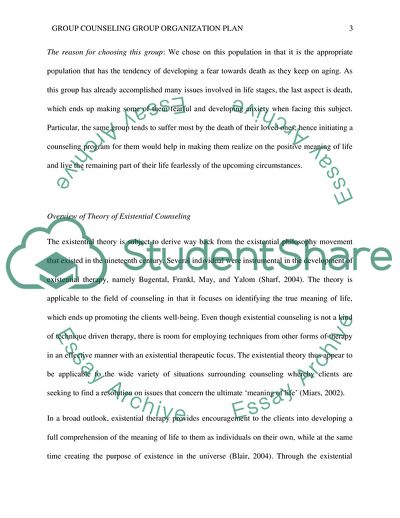Cite this document
(Counseling Focused on Existential Issues Report Example | Topics and Well Written Essays - 1750 words, n.d.)
Counseling Focused on Existential Issues Report Example | Topics and Well Written Essays - 1750 words. https://studentshare.org/psychology/1873434-group-counseling-group-organization-plan
Counseling Focused on Existential Issues Report Example | Topics and Well Written Essays - 1750 words. https://studentshare.org/psychology/1873434-group-counseling-group-organization-plan
(Counseling Focused on Existential Issues Report Example | Topics and Well Written Essays - 1750 Words)
Counseling Focused on Existential Issues Report Example | Topics and Well Written Essays - 1750 Words. https://studentshare.org/psychology/1873434-group-counseling-group-organization-plan.
Counseling Focused on Existential Issues Report Example | Topics and Well Written Essays - 1750 Words. https://studentshare.org/psychology/1873434-group-counseling-group-organization-plan.
“Counseling Focused on Existential Issues Report Example | Topics and Well Written Essays - 1750 Words”. https://studentshare.org/psychology/1873434-group-counseling-group-organization-plan.


